Crypto Recap
Mar 30, 2025
Weekly Crypto Recap (March 24th - March 30d)
Pumpfun Becomes Leading DEX on Solana with $1.8B Volume

Background: Pumpfun has emerged as the leading decentralized exchange (DEX) on the Solana blockchain, achieving a record-breaking trading volume in the past 24 hours.
Key Points:
- Pumpfun recorded an all-time high trading volume of over $1.8 billion within the last 24 hours.
- The volume accounts for 59% of the total DEX activity on Solana, indicating significant market dominance.
- This surge marks a pivotal moment for Pumpfun, showcasing its growing presence in the DeFi sector on Solana.
Key Takeaway: Pumpfun's recent trading volume achievement solidifies its position as the leading DEX on Solana, highlighting its expanding market share and influence.
Terraform Labs to Open Claims Portal for Investors on March 31
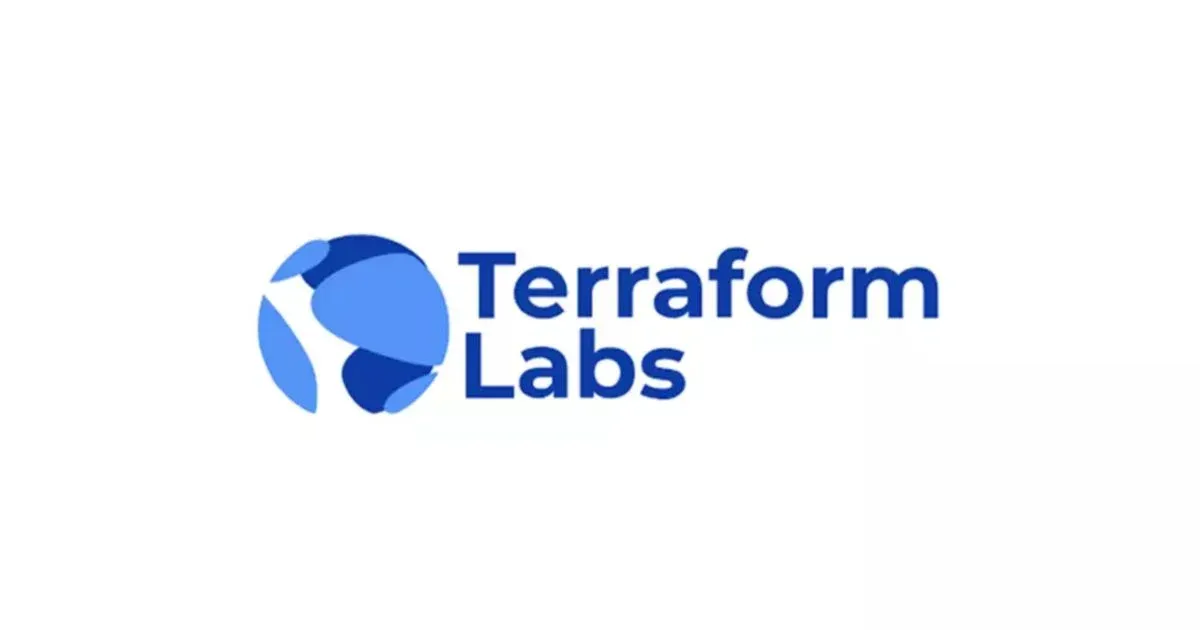
Background: Terraform Labs will launch a claims portal on March 31, 2025, allowing investors to file for recovery of losses related to the collapse of the Luna token and TerraUSD stablecoin.
Key Points:
- The deadline to file claims is April 30, 2025, at 11:59 p.m. ET. Late submissions will not be accepted.
- The portal is managed by Kroll and forms part of the court-supervised wind-down process.
- Only claims related to specific eligible crypto assets will be considered, excluding those with low on-chain liquidity (e.g., Terra 2.0’s Luna).
- Proof of ownership is required, preferably through API keys for faster processing.
- Initial claim decisions will be shared within 90 days after the deadline, and approved claims will be eligible for pro rata distributions.
Key Takeaway: Investors must act promptly to file their claims before the deadline to ensure potential recovery, with API keys being the preferred form of evidence.
Sonic Labs Ditches Algorithmic USD Stablecoin for UAE Dirham Alternative

Background: Sonic Labs has decided to abandon its plans to launch a USD-pegged algorithmic stablecoin, opting instead for a UAE dirham-denominated alternative. This move aligns with the UAE's digital currency rollout scheduled for late 2025.
Key Points:
- Initially, Sonic Labs aimed to launch a USD algorithmic stablecoin with an APR of up to 23%, as announced by co-founder Andre Cronje on March 22.
- A week later, the company reversed its decision, citing the development of a mathematically bound numerical Dirham instead, which is denominated in USD but not a USD-based algorithmic stablecoin.
- The pivot follows the UAE's announcement to introduce a digital dirham (CBDC) in Q4 2025 to enhance financial stability and combat financial crime.
- The original plan faced backlash due to concerns about algorithmic stablecoins, especially after the Terra ecosystem collapse in 2022.
Key Takeaway: Sonic Labs' strategic shift reflects a cautious approach following criticism and aligns with the UAE’s push for a digital dirham, signaling a move away from controversial algorithmic stablecoins.
Hawk Tuah Memecoin Price Spikes After SEC Closes Investigation
Background: The HAWK memecoin saw a surge in price after the US SEC reportedly closed its investigation into viral star Hailey Welch with no charges filed.
Key Points:
- Hailey Welch, known as the "Hawk Tuah girl", confirmed that the SEC investigation concluded with no charges or sanctions against her.
- Her lawyer stated that Welch faces no restrictions related to crypto or securities.
- The news caused the HAWK token price to spike by 60%, although Welch clarified that she has cut ties with the project and will not promote it.
- The HAWK memecoin previously soared to a $500M market cap before crashing 90% shortly after its launch in December.
Key Takeaway: The SEC's decision not to press charges led to a brief price surge for HAWK, but Welch’s disassociation from the project leaves its future uncertain.
Trump Pardons Co-Founders of BitMex Exchange

Background: Former US President Donald Trump has granted presidential pardons to the co-founders of BitMEX, Arthur Hayes, Benjamin Delo, and Samuel Reed, who previously pleaded guilty to federal criminal charges.
Key Points:
- The pardons clear the criminal records of the BitMEX co-founders, who were convicted of violating the Bank Secrecy Act.
- They had admitted to operating BitMEX as a money laundering platform and paid $30 million in civil and criminal fines collectively.
- The co-founders received probation as part of their sentencing, avoiding jail time.
- The pardons have sparked debates about accountability in the crypto sector and the impact of executive clemency on financial crime cases.
Key Takeaway: The pardons granted to BitMEX’s co-founders reignite discussions on crypto regulation and legal accountability, given their previous convictions and fines.
Hyperliquid to Compensate JELLYJELLY Traders and Strengthen Risk Protocols

Background: Hyperliquid, the leading decentralized perpetual exchange (DEX) by volume, has announced compensation for liquidated JELLYJELLY traders and plans to improve risk management following a controversial token delisting.
Key Points:
- Hyperliquid delisted the JELLYJELLY token to prevent a $10 million loss, resulting in forced liquidation for traders who went long.
- Affected traders will be compensated at the closing price of 0.037555, except for flagged addresses.
- The platform will tighten risk protocols by capping the Liquidator vault and rebalancing less frequently to mitigate future attacks.
- Automatic deleveraging (ADL) will trigger when the Liquidator vault balance drops below a set threshold, while open interest (OI) caps will become dynamic relative to market cap.
- Validators will vote onchain to delist assets falling below specific thresholds.
Key Takeaway: Hyperliquid’s compensation plan aims to address trader losses while introducing stricter risk management measures to enhance platform security.
Justin Sun’s Forbes Article Prompts Geography Lesson from Liberland

Background: A recent Forbes article about Justin Sun, founder of Tron and prime minister of Liberland, mistakenly claimed that Liberland is located in Croatia, prompting a correction from the micronation.
Key Points:
- Liberland’s official X account clarified that the territory is not located in or claimed by Croatia, but rather sits on a 7 km² strip between Serbia and Croatia.
- Forbes described Sun as a "pure opportunist" and questioned the validity of his claimed assets, estimating his net worth at at least $8.5 billion.
- The article also referenced Sun's previous role as Grenada ambassador, noting that he continues to use the title "His Excellency" despite losing the ambassadorship in 2022.
- Former Binance CEO Changpeng Zhao commented on the article, suggesting it felt like a "hit piece".
Key Takeaway: The controversy highlights ongoing questions around Sun’s public image, his role in Liberland, and the accuracy of his financial claims.
Galaxy Digital Settles for $200 Million with NY AG Over LUNA Promotion

Background: Galaxy Digital has agreed to pay $200 million to settle allegations by the New York Attorney General's Office related to its promotion of the LUNA cryptocurrency.
Key Points:
- The settlement addresses claims that Galaxy Digital promoted LUNA without disclosing its holdings and sales to the public.
- The case forms part of the wider investigation into the collapse of TerraUSD, which resulted in significant financial losses.
- Terraform Labs has also announced the opening of a claims portal for creditors affected by the TerraUSD collapse.
- The portal allows affected investors to file for compensation related to losses from the Terra ecosystem downfall.
Key Takeaway: Galaxy Digital’s settlement highlights the increased regulatory scrutiny on crypto promotions, especially those linked to high-profile collapses like TerraUSD.
Sei Foundation Floats 23andMe Acquisition, Aims to Secure Genetic Data on Blockchain

Background: The Sei Foundation, behind the layer-1 blockchain Sei, is exploring the acquisition of genetic testing company 23andMe following its bankruptcy filing on March 23. The move aims to protect genetic data by storing it on the blockchain.
Key Points:
- 23andMe filed for bankruptcy on March 23, raising concerns about the privacy of genetic data for approximately 15 million users.
- The Sei Foundation plans to deploy genetic information on the blockchain, enabling encrypted, confidential transfers to ensure data ownership for users.
- Sei emphasizes that user data sovereignty is a matter of national security, and blockchain technology can enhance privacy and transparency.
- Following the announcement, the Sei (SEI) token price briefly rose by 3%.
Key Takeaway: The potential acquisition reflects Sei’s commitment to data sovereignty, leveraging blockchain to secure genetic information amid privacy concerns linked to 23andMe’s bankruptcy.
Binance Founder Changpeng Zhao Will Read Your Message for $640

Background: Binance founder Changpeng Zhao (CZ) has adopted ReachMe, a BNB-based pay-to-reach messaging service, to manage his inbox and reduce spam.
Key Points:
- The price to message CZ on ReachMe has increased by 2,500% to 1 BNB (around $640) as he tries to find a balance between accessibility and spam control.
- Initially, CZ set the price at 0.04 BNB ($24), but the overwhelming number of trivial messages led him to raise the fee multiple times.
- CZ aims for a "sweet spot" of 10 messages per day to maintain manageable communication.
- ReachMe allows key opinion leaders (KOLs) to monetize message access, promoting authentic interactions while minimizing spam.
Key Takeaway: CZ’s use of ReachMe reflects the challenges faced by public figures in managing digital communications, demonstrating how pay-to-reach models can create a more controlled and valuable interaction environment.
Sam Bankman-Fried Transferred to Oklahoma City FTC After Unauthorized Interview

Background: Sam Bankman-Fried, founder of the collapsed FTX exchange, has been moved from a New York federal jail to the Oklahoma City Federal Transit Center following an unsanctioned interview with Tucker Carlson.
Key Points:
- Bankman-Fried has been in custody since August 2023, serving a 25-year sentence for fraud.
- The transfer to Oklahoma City is part of a process to relocate him to a permanent facility, likely on the West Coast.
- The move follows the discovery of an unauthorized prison interview he conducted with Tucker Carlson.
- The final destination of his transfer has not been confirmed.
Key Takeaway: The unauthorized interview with Carlson triggered the transfer, reflecting the strict communication protocols for high-profile inmates like Bankman-Fried.
Hyperliquid Delists JELLYJELLY Memecoin Amid Whale Manipulation Fiasco

Background: Hyperliquid, a leading DeFi platform, has delisted the JELLYJELLY memecoin after a whale manipulation event caused significant losses in its HLP vault.
Key Points:
- A whale manipulated onchain prices by shorting JELLYJELLY while dumping the token on DEXs, leading to $12 million in unrealized losses.
- Hyperliquid halted trading and delisted the JELLY perpetual contract after evidence of suspicious market activity.
- Binance and OKX listed JELLYJELLY futures shortly after the incident, increasing pressure on Hyperliquid.
- Hyperliquid announced that compensation will be provided to affected users, except for flagged addresses, with automatic refunds based on onchain data.
- Hyperliquid’s native token HYPE dropped by 22% during the event before stabilizing at -10%.
Key Takeaway: The delisting of JELLYJELLY highlights the vulnerability of DeFi platforms to whale manipulation, prompting Hyperliquid to enhance risk management and improve network security.
Fidelity Plans Stablecoin Launch After SOL ETF Regulatory Test

Background: Fidelity Investments is reportedly finalizing the launch of a US dollar-pegged stablecoin, marking its continued expansion into digital assets amid a favorable regulatory climate under the Trump administration.
Key Points:
- The stablecoin will be launched through Fidelity Digital Assets, reflecting the firm’s broader push into crypto-based services.
- Fidelity is also preparing an Ethereum-based "OnChain" share class for its US dollar money market fund, expected to take effect on May 30.
- The stablecoin initiative follows a regulatory litmus test linked to Fidelity’s Solana ETF proposal, which could gauge the SEC's stance on blockchain-based financial products.
- The US government is expected to finalize stablecoin legislation within the next two months, aiming to establish collateralization guidelines and compliance with Anti-Money Laundering (AML) laws.
Key Takeaway: Fidelity’s stablecoin plans reflect a strategic move to position itself as a leader in the evolving crypto financial landscape, while upcoming legislation may further shape the stablecoin market.
GameStop Adds Bitcoin as Corporate Treasury Asset

Background: Video game retailer GameStop has updated its investment policy to include Bitcoin as a treasury reserve asset, reflecting a strategic shift towards digital assets.
Key Points:
- GameStop did not disclose the amount of Bitcoin purchased but confirmed the inclusion of Bitcoin and USD-denominated stablecoins in its investment policy.
- The move follows speculation triggered by a photo of GameStop CEO Ryan Cohen with Michael Saylor, a prominent Bitcoin advocate.
- The company previously explored crypto, launching and later shutting down its NFT wallet (August 2023) and NFT marketplace (February 2024) due to regulatory uncertainty.
- GameStop reported a net income of $131.3 million for Q4, nearly doubling the previous year’s figure, with $4.75 billion in cash on hand.
Key Takeaway: GameStop’s adoption of Bitcoin as a treasury asset signals confidence in digital currencies, despite past challenges with NFT ventures.
Berkshire-Backed Nubank Adds ADA, NEAR, ATOM to Crypto Offerings
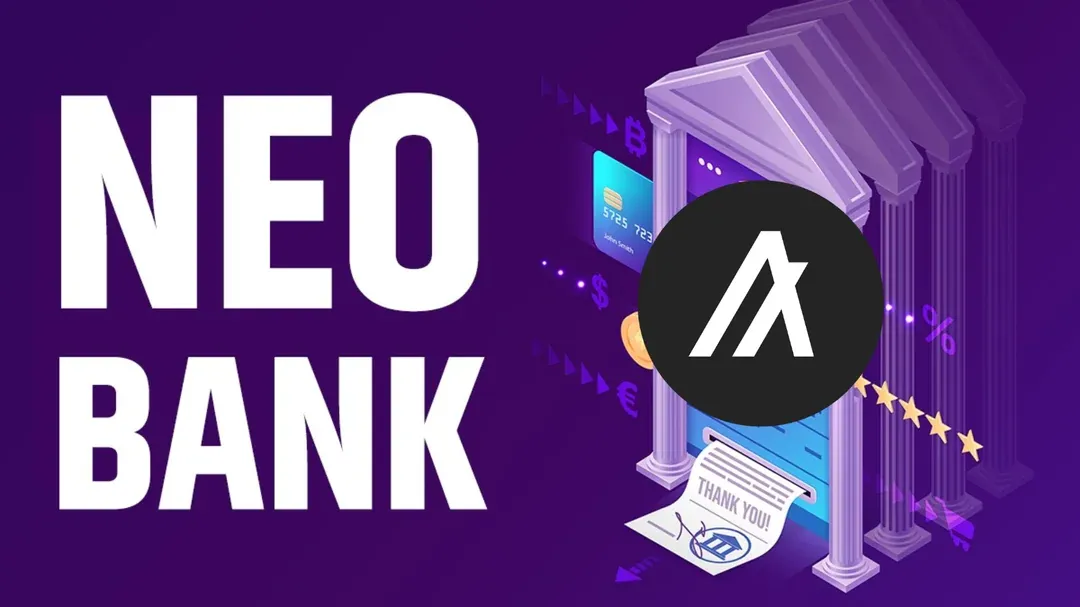
Background: Latin American financial giant Nubank, backed by Warren Buffett’s Berkshire Hathaway, has expanded its crypto services by adding Cardano (ADA), Near Protocol (NEAR), Cosmos (ATOM), and Algorand (ALGO) to its platform.
Key Points:
- Nubank now offers 20 cryptocurrencies to its 100 million Brazilian customers, including Bitcoin, Ether, Solana, USDC, and XRP.
- The new additions bring a combined market capitalization of $34.6 billion to Nubank’s crypto portfolio.
- Nubank has seen remarkable growth, with quarterly revenue increasing by 1124% in less than four years, reaching $3 billion by the end of 2024.
- Berkshire Hathaway has significantly invested in Nubank, holding a 0.4% stake as of 2024, following multiple funding rounds.
- Nubank faces competition from Binance, which secured a broker-dealer license in Brazil in 2025, and Revolut, which also entered the market.
Key Takeaway: Nubank’s expansion into ADA, NEAR, ATOM, and ALGO reflects its commitment to growing its crypto offerings, capitalizing on Brazil’s increasing crypto adoption and positioning itself as a leader in the Latin American market.
BlackRock Launches Bitcoin ETP in Europe
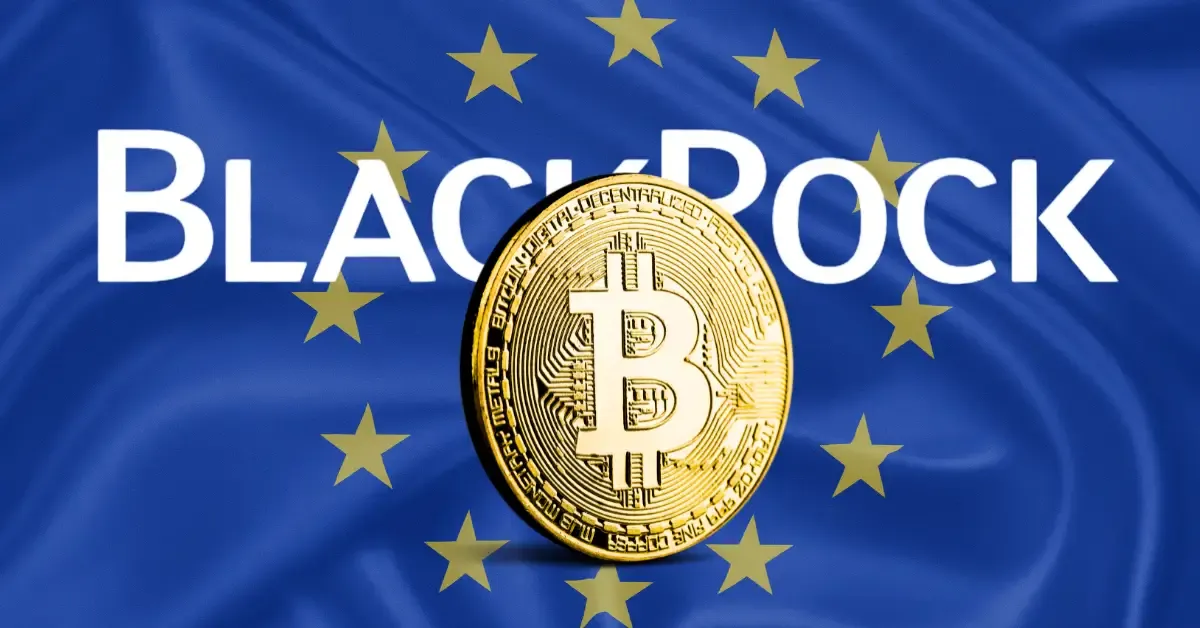
Background: BlackRock, the world’s largest asset manager, has launched its first Bitcoin exchange-traded product (ETP) in Europe, further establishing its presence in the digital assets space.
Key Points:
- The iShares Bitcoin ETP is now listed on Euronext Paris, Euronext Amsterdam, and Xetra exchanges.
- The ETP is backed by Bitcoin held in cold storage by Coinbase Custody International Ltd.
- To attract investors, BlackRock has temporarily reduced the management fee to 0.15% until the end of 2025.
- In addition to the Bitcoin ETP, BlackRock has expanded its BUIDL tokenized money market fund to the Solana blockchain, adding to its presence on seven blockchains.
- BUIDL allows investors to hold tokenized shares backed by US Treasury bills and cash, providing on-chain USD yields.
Key Takeaway: BlackRock’s move to introduce a Bitcoin ETP in Europe and expand BUIDL to Solana highlights its commitment to growing its crypto and blockchain-based financial products portfolio.
Trump-Backed World Liberty Financial to Launch USD1 Stablecoin
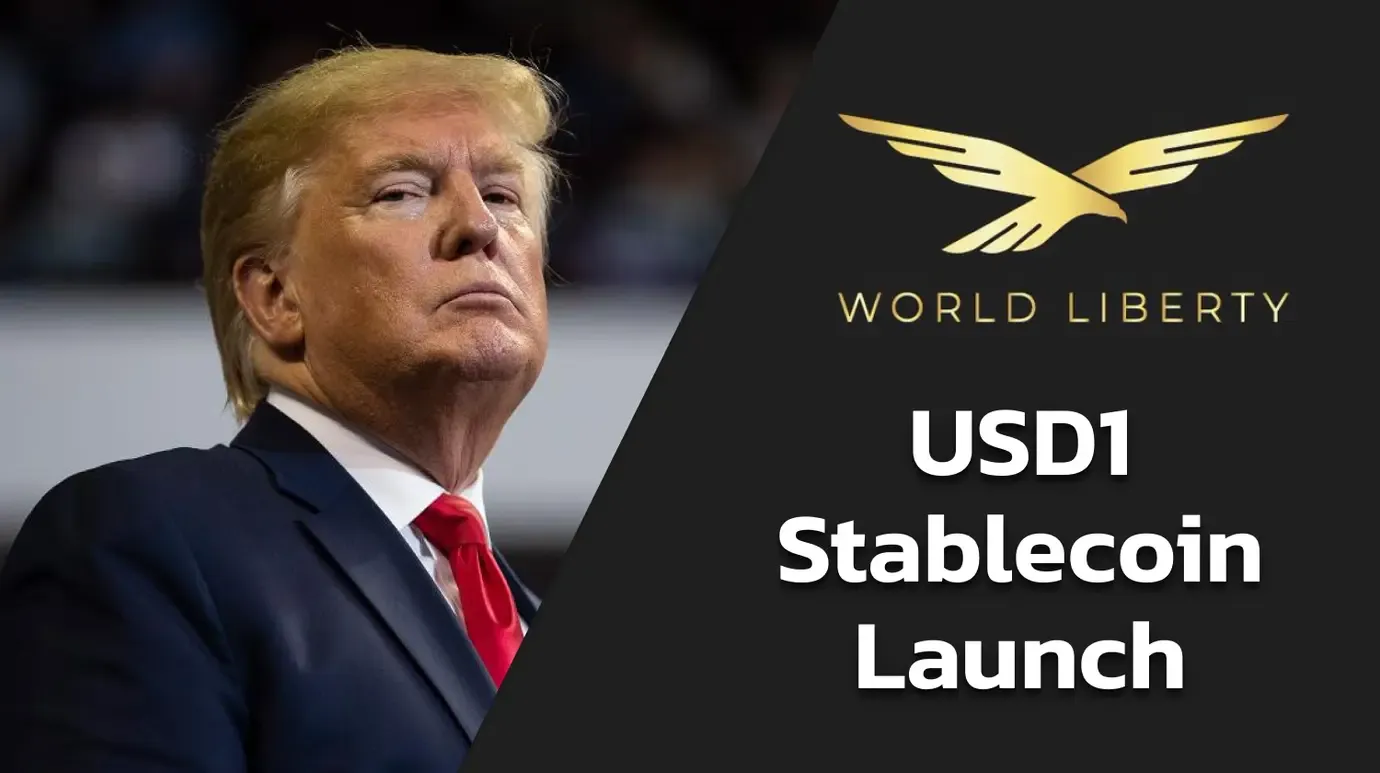
Background: World Liberty Financial (WLFI), a DeFi project backed by Donald Trump, plans to launch a new stablecoin named USD1, aiming to compete with USDT and USDC.
Key Points:
- USD1 will be pegged to the U.S. dollar and fully backed by short-term U.S. treasuries, dollar deposits, and cash equivalents.
- The stablecoin will be launched on Ethereum and BNB Chain, with plans to expand to other blockchain protocols.
- Reserves will be held by BitGo, a regulated custodian, and supported by BitGo Prime for institutional liquidity.
- The Trump administration sees USD1 as a way to strengthen the U.S. dollar's presence in the digital asset space.
- WLFI has raised $550 million through its governance token sale, with 75% of proceeds linked to a Trump-backed company.
Key Takeaway: The launch of USD1 represents a strategic move to challenge USDT and USDC by combining DeFi innovation with traditional financial credibility, leveraging Trump’s support and institutional-grade infrastructure.
Why Buybacks Won’t Stop the DYDX Token’s 72% Decline

Background: Dydx, a leading perpetual futures trading platform, announced plans to use 25% of its profits to buy back its governance token (DYDX). The initiative aims to align protocol success with token value despite the token’s 72% decline since the crypto market peak.
Key Points:
- The buyback strategy intends to link DYDX value to protocol profitability, using trading fees to repurchase tokens.
- 8.33 million DYDX tokens are unlocked each month, creating continuous selling pressure until July 2026.
- Dydx generated $1.3 million in fees in February, meaning the buyback could only repurchase around 4% of the unlocked tokens.
- Critics argue that buybacks are an inefficient use of capital, especially when revenues are low and the protocol may need funds for innovation and restructuring.
- Other DeFi projects like GMX, Hyperliquid, Arbitrum, and Aave have also proposed or implemented buybacks, though reports suggest that market sentiment and growth metrics are more influential on token performance.
Key Takeaway: Dydx’s buyback plan faces skepticism due to high token unlock rates and limited impact on price recovery, highlighting challenges in using buybacks as a tool to boost token value.
Abracadabra.Money’s GMX Pools Hacked, $13M Lost

Background: Abracadabra.Money, a decentralized lending protocol, lost approximately $13 million in ETH after a hack targeting its GMX-linked pools. Despite the loss, GMX denies any vulnerabilities in its own smart contracts.
Key Points:
- The exploit targeted MIM pools using GMX tokens, draining about 6,260 ETH ($13 million).
- GMX clarified that its smart contracts were not compromised, attributing the issue solely to Abracadabra/Spell cauldrons using GM liquidity tokens.
- The stolen funds were transferred from Arbitrum to Ethereum via a blockchain bridge, with hackers using Tornado Cash to fund the initial transactions.
- Abracadabra.Money previously suffered a $6.49 million loss in January 2024 due to a smart contract breach, affecting its MIM stablecoin’s peg.
- AMLBot confirmed that only Abracadabra.Money contracts were breached, while GMX contracts remained unaffected.
Key Takeaway: The incident highlights the risk of cross-protocol vulnerabilities, as the issue stemmed from Abracadabra’s use of GMX-linked liquidity tokens, not from GMX itself.
Movement Network to Buy Back Tokens with $38M Recovered from Rogue Market Maker
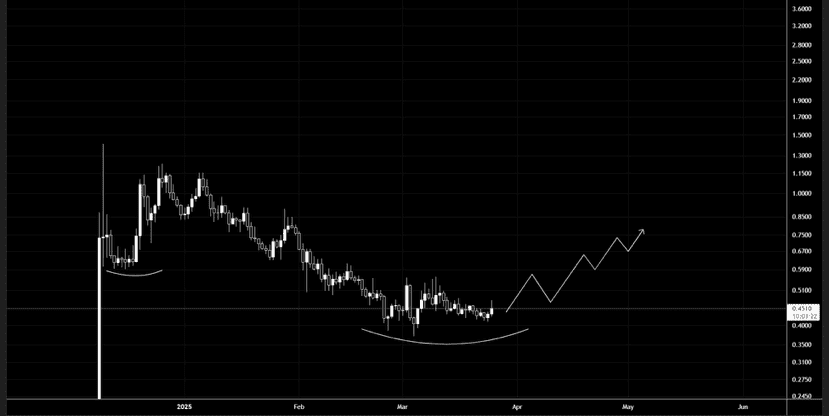
Background: The Movement Network Foundation plans to use $38 million recovered from a rogue market maker to buy back MOVE tokens over the next three months.
Key Points:
- The funds were recovered after Binance froze the rogue market maker’s proceeds, which amounted to 66 million MOVE tokens sold with minimal buy orders.
- The market maker was offboarded from Binance due to market irregularities, and all ties between the Movement Network and the market maker were severed.
- The $38 million USDT will be used to establish the Movement Strategic Reserve, implementing a buyback program to purchase MOVE tokens for long-term use.
- The Movement Network shared a wallet address for the Strategic Reserve, where the purchased tokens will be periodically transferred.
- Binance has recently intensified scrutiny of market makers, including actions against GoPlus Security and MyShell, as well as investigating insider trading allegations within its team.
Key Takeaway: The Movement Network’s buyback initiative aims to restore confidence in the MOVE token after a market manipulation incident, utilizing recovered funds to stabilize the ecosystem.
Onchain Sleuth ZachXBT Accuses Crypto.com of CRO Supply Manipulation

Background: Crypto.com faces backlash after onchain investigator ZachXBT accused the platform of reissuing 70 billion Cronos (CRO) tokens that had been burned “permanently” in 2021, raising concerns about decentralization and governance.
Key Points:
- The reissued 70 billion CRO tokens represent 70% of the total supply, contradicting the previous permanent burn commitment.
- ZachXBT criticized Crypto.com for manipulating supply and going against community expectations, calling the move similar to a scam.
- Crypto.com CEO Kris Marszalek defended the decision, citing the need for aggressive investment following support from the new US administration, arguing that the previous burn was a defensive move.
- Critics questioned the governance process, as Crypto.com allegedly controls 70%-80% of the voting power through validators, effectively enabling unilateral decisions.
- The move follows a non-binding agreement with Trump Media to launch US crypto ETFs, raising further controversy about the platform’s strategic direction.
Key Takeaway: The reissuance of 70 billion CRO tokens has sparked a heated debate about Crypto.com’s governance practices, with critics pointing to a lack of decentralization and transparency.
Dogecoin Foundation Purchases 10M Tokens for New DOGE Reserve

Background: The Dogecoin Foundation, through its corporate arm House of Doge, has acquired over 10 million DOGE (worth approximately $1.8 million) to establish a DOGE reserve aimed at enhancing its use as a payment currency.
Key Points:
- House of Doge, established in February, aims to transform DOGE from a memecoin into a practical payment currency with low transaction fees.
- The foundation plans to partner with various payment processors to integrate DOGE into everyday transactions.
- The DOGE reserve will ensure liquidity, stability, and reliability, making it more suitable for real-world payments.
- Despite initial gains linked to Trump’s election, DOGE’s price has dropped by over 30% since January amid profit-taking.
Key Takeaway: The creation of the DOGE reserve marks a strategic shift from meme status to legitimate payment currency, with House of Doge aiming to bridge the gap between crypto usability and mainstream adoption.
How Kanye West’s Crypto Pivot Fuels Antisemitism and Nazi-Themed Meme Coins

Background: Kanye West's rumored crypto ventures have sparked the creation of Nazi-themed meme coins, with communities forming around controversial tokens like Swasticoin (YZY). These coins have been linked to antisemitic rhetoric, raising concerns about radicalization through meme culture.
Key Points:
- Swasticoin (YZY), a meme coin linked to Kanye West, briefly reached a $181 million market cap before collapsing to $4.5 million. The token features a swastika logo combined with Ye’s name.
- Despite accusations of antisemitism, some traders claim they invest purely for profit without endorsing the hateful messaging.
- Experts warn that meme coins with hateful symbols can normalize extremist ideologies, especially as online communities evolve from "just jokes" to active hate speech.
- The Dogecoin Foundation and other crypto communities have condemned the use of crypto for hate speech, emphasizing that "joke" coins with Nazi symbols can contribute to real-world harm.
- Scholars stress that memes can serve as radicalization tools, gradually shifting public perceptions toward more extremist views.
Key Takeaway: Kanye West’s crypto association has unintentionally fueled the rise of antisemitic meme coins, with critics highlighting the danger of blending hate symbols with meme culture, potentially leading to online radicalization.
Star Atlas Development Moves Forward Despite Token Price Fluctuations

Background: Star Atlas, a sci-fi interplanetary MMORPG, continues to advance its development despite challenges in the crypto gaming sector and fluctuations in its token price.
Key Points:
- Star Atlas CEO Michael Wagner emphasized that the game’s progress remains strong despite market volatility and the long development timeline.
- The game’s web-based version, SAGE (Star Atlas Golden Era), is available until the full 3D immersive game is launched.
- A recent patch introduced Galia mode, allowing single-player space exploration with seamless navigation and diverse biome experiences.
- Wagner noted that the project has recovered well post-FTX, maintaining a stable development pace despite crypto market cycles.
Key Takeaway: Star Atlas continues to focus on building its game universe, resisting the pressure to prioritize short-term hype, and maintaining progress despite market challenges.
Michael Saylor's Strategy Surpasses 500,000 BTC After Latest $584 Million Buy

Background: Strategy (formerly MicroStrategy) has acquired an additional 6,911 BTC for approximately $584.1 million, pushing its total holdings to over 500,000 BTC — worth more than $44 billion.
Key Points:
- The purchase was made at an average price of $84,529 per BTC, bringing Strategy’s total to 506,137 BTC, about 2.4% of Bitcoin’s total supply.
- The acquisitions were funded through the sale of class A common stock (MSTR) and perpetual strike preferred stock (STRK).
- Strategy’s total investment in BTC now amounts to $33.7 billion at an average price of $66,608 per BTC.
- The company’s 21/21 plan aims to raise $42 billion for further Bitcoin purchases through equity offerings and fixed-income securities.
- Despite market volatility, MSTR shares have surged by over 90% in the past year, reflecting investor confidence in Strategy’s Bitcoin-focused strategy.
Key Takeaway: Strategy’s milestone of 500,000 BTC cements its position as the largest corporate holder of Bitcoin, showcasing CEO Michael Saylor’s unwavering commitment to Bitcoin accumulation.